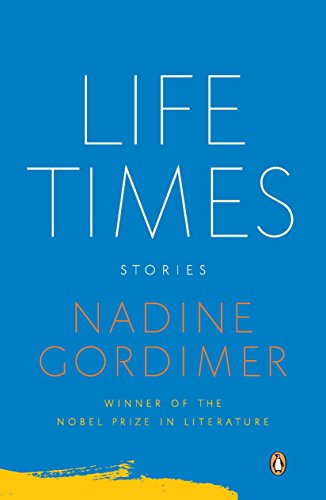In The Art of Time in Fiction, Joan Silber states that where the narrator begins and ends her story decides how it gathers meaning. She writes, “All fiction has to contend with the experience of time passing. […] This parade of events is what distinguishes the narrative impulse from the purely clerical one.” Silber proceeds to define a few basic categories of time spans that I have found useful in the analysis of time as a plot element raising emotional stakes for characters. She distinguishes between classic time, long time, switchback time, slowed time, and fabulous time.
Let’s take a look at classic time in Nadine Gordimer’s story, The Ultimate Safari, and switchback time in Tennessee Williams’ (TW) story, The Mysteries of the Joy Rio. Silber defines classic time as a “brief natural span, a month a season a year— handled in scene-and-summary.” In contrasts switchback time moves back and forth among points in the past and present.
Gordimer’s story is rendered in a child’s POV. The stakes are high, life and death, and the passing of time and circumstances are rendered to great emotional effect. In TW’s story switchback time is used to raise the stakes and render a satisfying meaning to the reader. Both stories are casting time as a character in the story.
In TW’s story both characters, Gonzalez and Kroger are watch repairmen literally and figuratively surrounded by ticking clocks that almost fade into the background. Yet, the passage of time (in the case of Gonzalez, the passage of his lifetime) is always front and center to the story. In an otherwise “quiet” plot, the element of time (a lifetime lived) is what lends the story it’s great emotional impact and meaning. Stakes are elevated as time goes on.
In The Ultimate Safari, the stakes are life and death. The story opens with the narrator’s mother gone; her three children left behind. The narrator, a young girl, does not know where her mother has vanished to. The children are frightened and hungry. They also fear the external threat of “bandits.” There is a stillness in the passing of time in the story, yet the stakes are increasing with the period of stillness and waiting: hunger. With hunger comes the enviable thought of survival. For example, “We waited for a long time at our grandmother’s place. Perhaps it was a month. We were hungry. Our mother never came.” Then time begins to move again, literally and figuratively, as the group leaves grandmother’s place in search for food but hope is crushed quickly because they have to return to the place with no food. Survival now comes with the added tension of choosing between food or water. As time presses on, danger knocks again. The only way to get to safety, is through Kruger Park. With the choice to move through Kruger Park, the ticking clock of survival raises the stakes yet again. Moving through the park moving among dangerous wild animals. The longer it takes to get through the park without food the hope for survival dwindles. Time is indeed the antagonist in this to story.
Gordimer chooses moments in time and concrete details that serve the story. There is precision in her descriptive details, dialogues and gestures which allows the reader to experience the story as a whole because the reader is there for the important parts in time. Early on in the park, the narrator observes a herd of elephants she notices how “the babies leant against their mothers. The almost grown-up ones wrestled like my firstborn brother with his friends— only they use trunks instead of arms.” The comparison to other wild animals at this point in the story is palatable yet the narrator is aware how they differ from the elephants. The elephants pass slowly “ because elephants are too big to need to run from anyone.” Again we are reminded there is a ticking clock. They are on the run. The longer it takes the hungrier they get. Tension and stakes steadily rise as the narrator then compares herself to hyenas, the loss of dignity begins. Hyenas are scavengers, feeding of dead animals or stealing already killed prey from other animals. In the eyes of the narrator they now have become animals themselves. Stakes are raised again when they fear they may be attacked by lions and instead of finding food they could become food for wild animals. With time passing the stakes, of life and death, continue to rise which find a climax in the loss of the grandfather. Death is close. Time has run out for one of them which leads to the narrator’s transformation from identifying with scavenger animals to becoming walking dead animals themselves. She writes: “We had passed them often where they were feeding on the bones of dead animals.” This is when they, at last,outrun time arriving at the refugee camp. Times speeds up and again we are there for the important moments. The story ends with a look in the future, hope to return home. But also, the look back in time: “I’ll remember them.”
The passage of these many moments in time shows with great specificity what the character has to lose. The stakes are high which pulling the readers into the narrative as they can’t help but fear and hope for an outcome right along with a point-of-view character.

